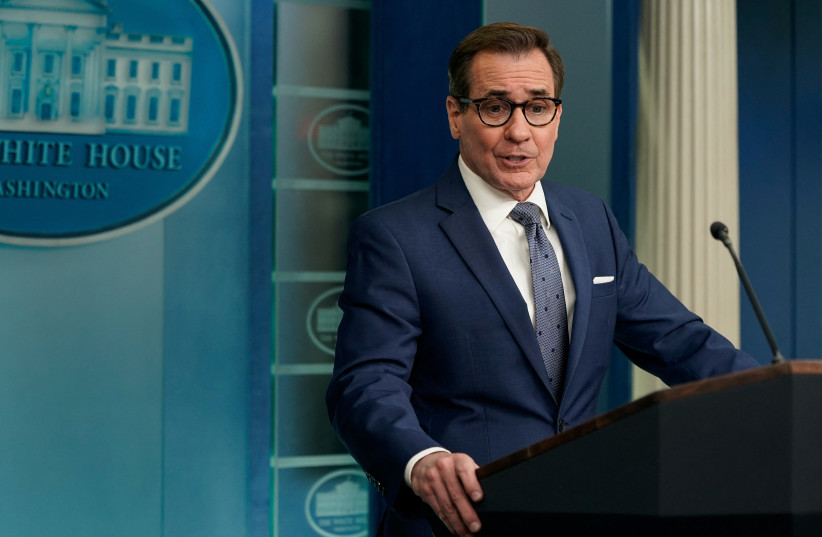In the coming weeks, the US will provide humanitarian aid to Gaza via airdrops and eventually a maritime corridor, the White House announced on Friday.
The White House's announcement comes a day after the disaster in northern Gaza, where 100 Palestinians were killed while attempting to receive humanitarian assistance from aid trucks.
National Security Spokesman John Kirby called Thursday's event tragic and alarming. The US asked Israel to investigate the situation, which Kirby said Israel is taking seriously. Kirby said the White House doesn't have enough information yet to verify the IDF claims that they only fired warning shots.
"This event underscores the importance we believe of expanding and sustaining the flow of humanitarian assistance into Gaza since so much of it is in need," Kirby said, "and by no means should what happened yesterday preclude or prevent additional humanitarian assistance from getting in."
The air drops will be carried out in coordination with international partners, particularly Jordan, Kirby said.

Kirby said there's few military operations that are more complicated than humanitarian assistance airdrops because so many parameters have to be exactly right. The airdrops will be part of a sustained effort Kirby said and will improve over time.
Gaza's population density makes airdrops complicated
It's extremely difficult to do an airdrop in such a crowded environment as Gaza that's so densely populated, Kirby said.
The first airdrops will likely be food. The biggest risk is making sure no one gets hurt on the ground and will be safe for people so they don't become victims of the drop, Kirby said.
The drop also needs to be in a location that is accessible to aid organizations to help with the collection and distribution of the food, according to Kirby.
The idea for air drops has been worked on for a while, Kirby said, but the need has become more acute in recent weeks.
"[Thursday's] event certainly underscored for the president the need to continue to find alternative routes and alternative means of getting humanitarian assistance into Gaza," Kirby said.
The White House is trying to get ground relief into Gaza, which is why Kirby said the hostage deal needs to be reached. The air drops will be a supplement, not a replacement, for moving in aid on the ground.
Kirby said the White House's announcement will not come as a surprise to the Israelis.
"This isn't about pulling levers and trying to hold something over Prime Minister Netanyahu. The war cabinet, they have been willing to work with us on getting aid and assistance into Gaza," Kirby said. "I want to be, as I said earlier, clear that it's not enough."
Kirby was pressed if the US will still militarily support Israel after the events in Northern Gaza on Thursday.
Kirby also said there has been no change to the suspension of UNRWA funding.
